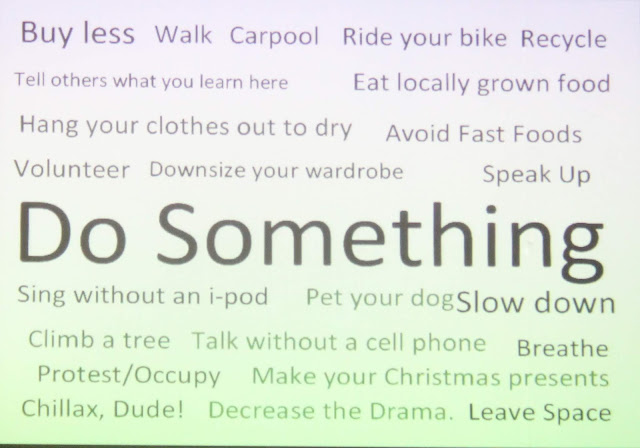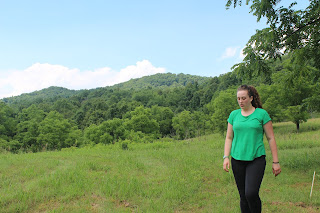Appalachia is a suffering, exploited zone of people. The population is dropping because of a cycle of poverty perpetuated by work conditions and benefit-less jobs in the fossil fuel industry. The mechanization of extraction processes, while increasing profits for large corporations, has erased the need for human workers, triggering unemployment and discontent.
Yet there is beauty here, in the mountains, in the people that wave when you drive by, and in the biodiversity of life, even as it is threatened by devastating practices.
This beauty is not part of the narrative that is fed to the rest of the nation.
Stereotypes insist that these people are all backwards, white hicks who work in coal mines because they don’t know any better, don’t understand the fragility of creation, or don’t care.
The truth, as always, is more complicated and more heart-breaking.
Appalachians are fully aware. How could a community be oblivious to the horrors of environmental devastation when entire mountain tops, perhaps their former homes bought out by a coal company, are blasted away for the “energy security” of the nation? Or when their water is contaminated by coal sludge?
Yet the political and economic power of large out-of-state companies is used to control the Appalachian narrative.
Coal companies emphasize the importance of coal to the Appalachian communities themselves, and any protests or lawsuits are easily paid off. If you don’t work in coal, what will you do? How could you argue with providing “energy security” in a nation so dependent on fossil fuels?
No matter how damaging the coal industry is to communities and the environment, coal jobs are temporary life-floats for many Appalachians. There are not a lot of jobs for unskilled laborers, and while coal jobs are transient, lack health benefits, and are dangerous and unfulfilling, they are temporarily well-paying and often the only option.
Coal companies also use environmentalists and the “War on Coal” as scapegoats for the discontent and unemployment in the region. It’s easy to believe that environmentalists are trying to take jobs away. And it is often true that the environmental movement is oblivious to the consequences Appalachians will continue to face if they are left behind in favor of the nation’s sustainability agenda.
Essentially, our current economic practices keep Appalachians in this place of poverty and destitution, and we keep them in this place when we contribute to these practices.
The current model of capitalism has created a buyer’s culture that pressures consumers to buy material goods and to amass wealth or else be marginalized, while marginalizing those who live near natural resources by exploiting them as a cheap source of labor and using their resources up. The only people benefiting are the rich and wealthy who are put into positions of power by this system. These are also the people dictating the narratives that are heard the loudest.
Our economy grows by exploiting both people and creation, and there is no easy solution to the devastation it causes globally or within Appalachia.
It is in some ways easier to think that the conditions found within Appalachia are simply due to an oblivious and uneducated population, but this ignores the history of the area. It ignores the peoples’ passion and love for their mountains. It hides the reality that our economic system creates areas of poverty like this all over the world so that others can live lives of privilege and plenty. The simple yet false narrative makes it easier for us to buy into these economic practices every day of our lives.
While it is clearly dangerous to tell someone else’s story, to decide how their problems should be solved or even what their problems are, as outsiders, we can share the true narratives of Appalachia. These narratives aren’t written by the coal companies, the wealthy, or environmentalists.
Gaining this understanding is the beginning of solidarity. It is the beginning of compassion and love. It is key to understanding that Appalachians don’t need our help in terms of weeding or mucking out stalls, these are short term projects that have allowed us to practice serving God, and they don’t need our sympathy. Instead, they need us to focus on the root of the problems that have led to their current conditions. This starts with our everyday actions regarding what and how we consume and our attempts at spreading awareness, so others can also bring light to the injustices of our economic system. This can be scary; it doesn’t end after a week of service work, it lasts the rest of our lives.
“If you have come to help me you are wasting your time, but if you have come because your liberation is bound up in mine, then let us work together.” -Lilla Watson
 |
| Slides from Jeannie's presentation about working for justice upon our return home. |
 |
Audrey Dawson |




























